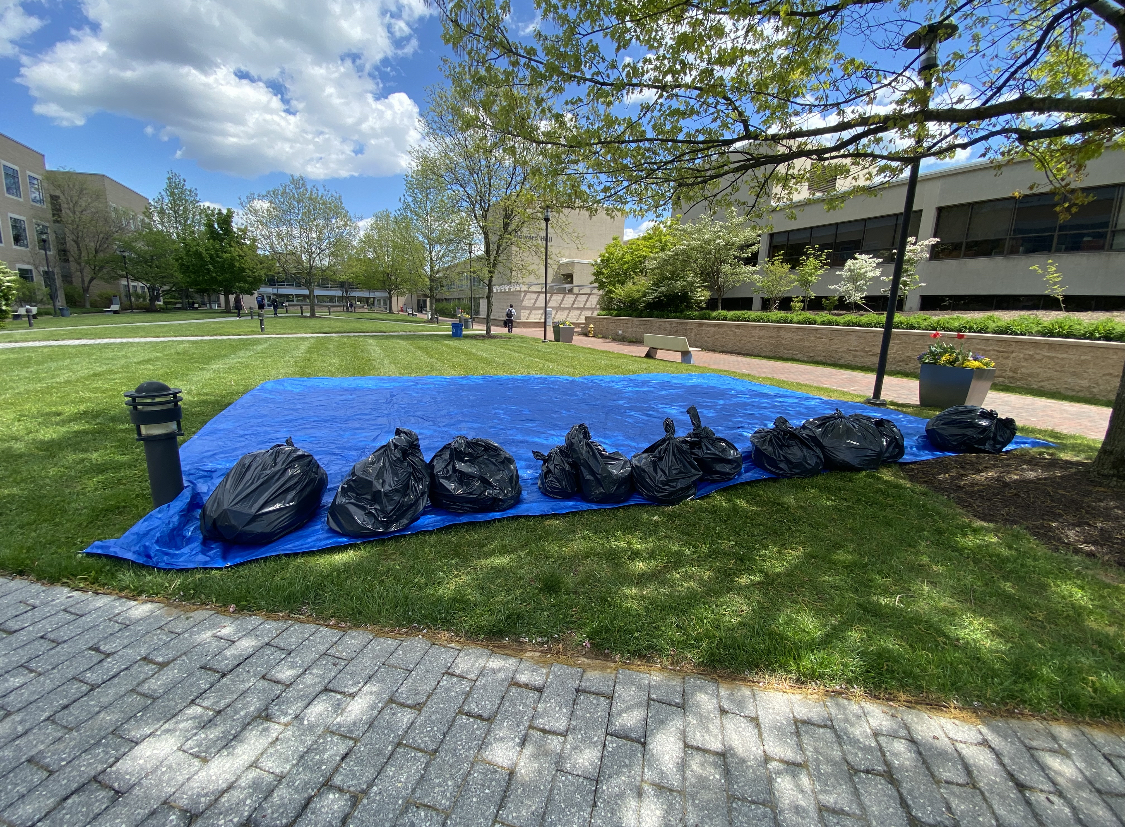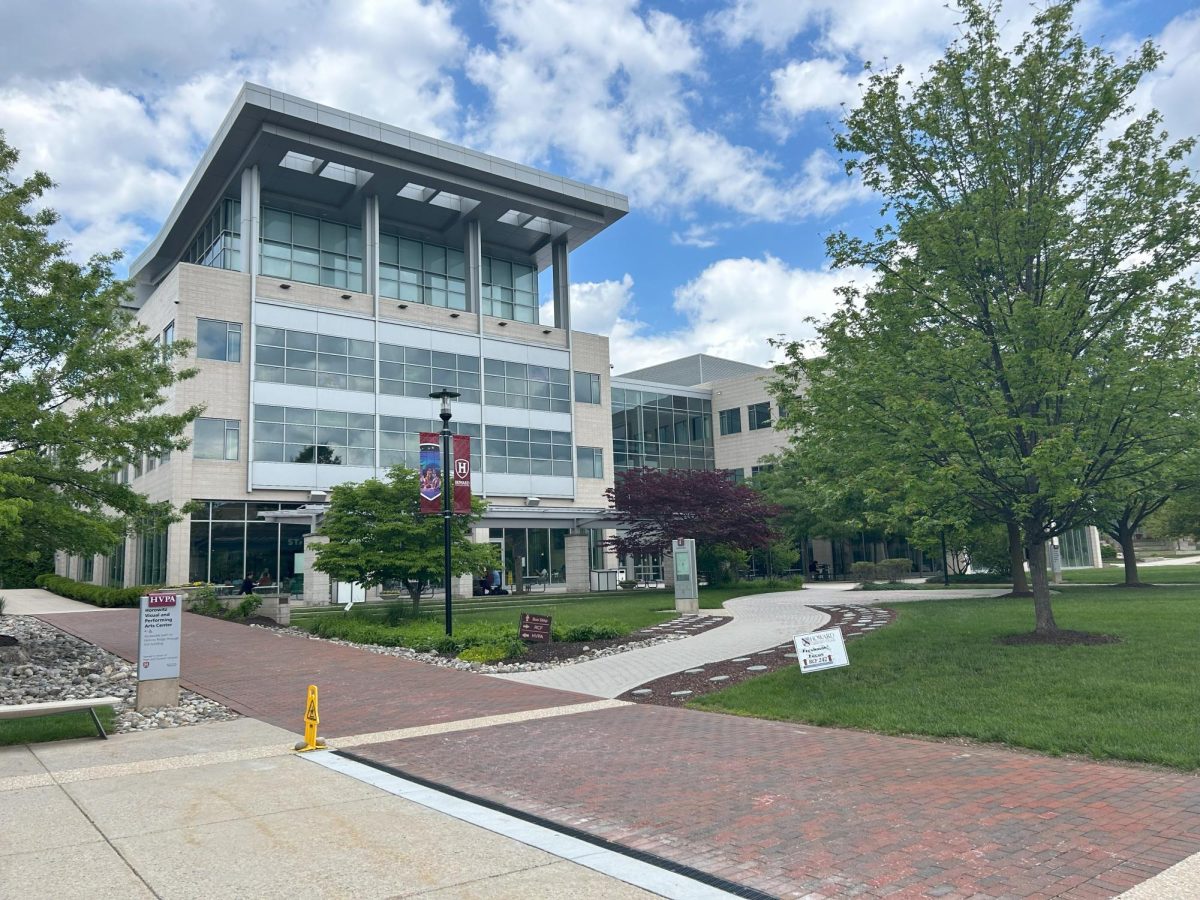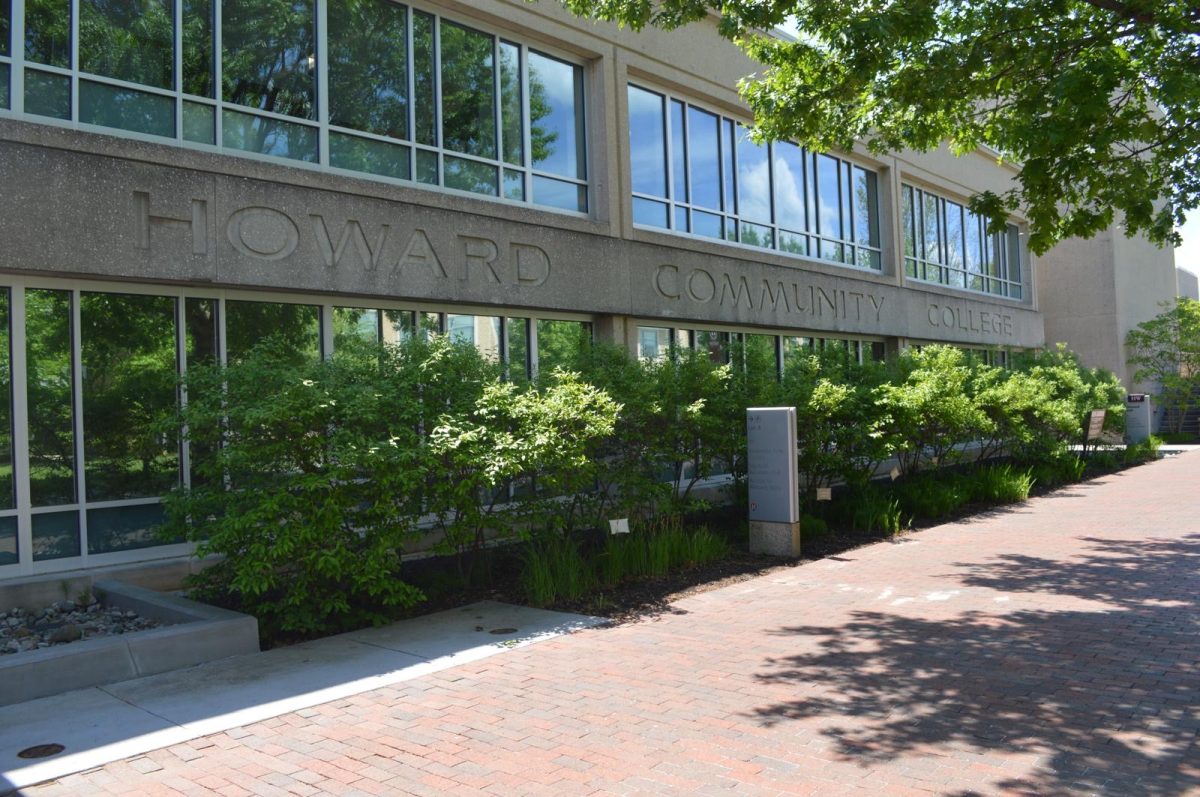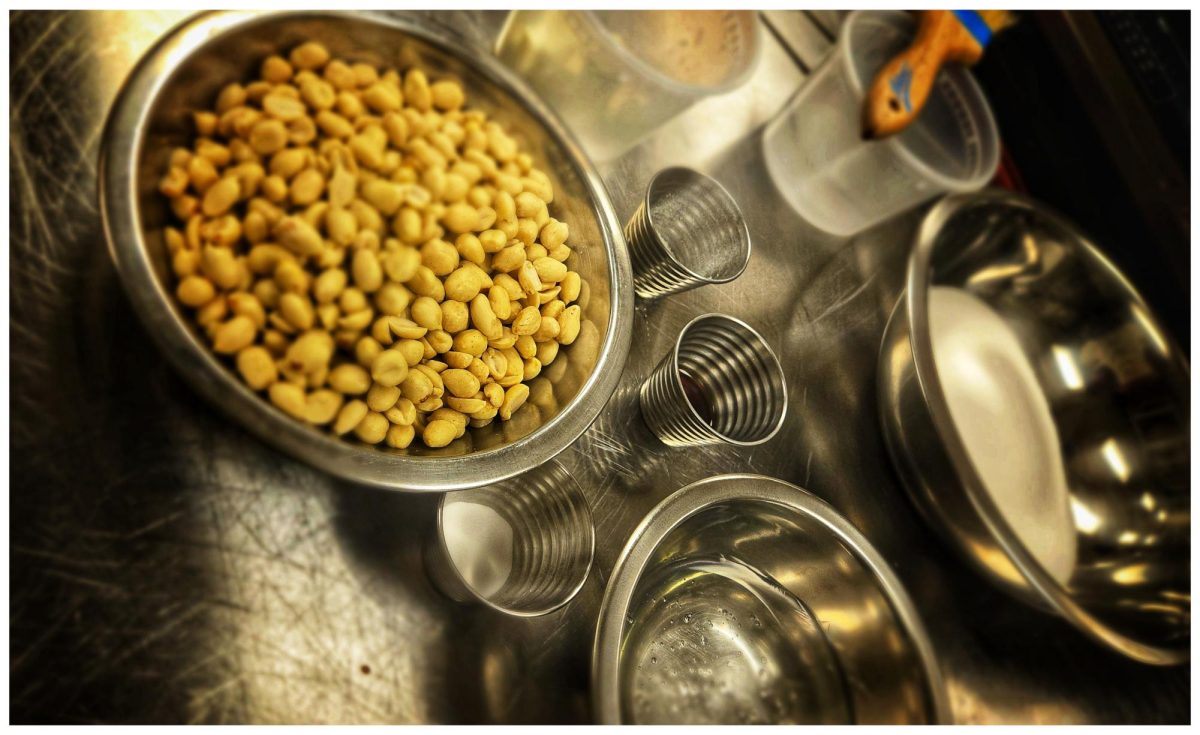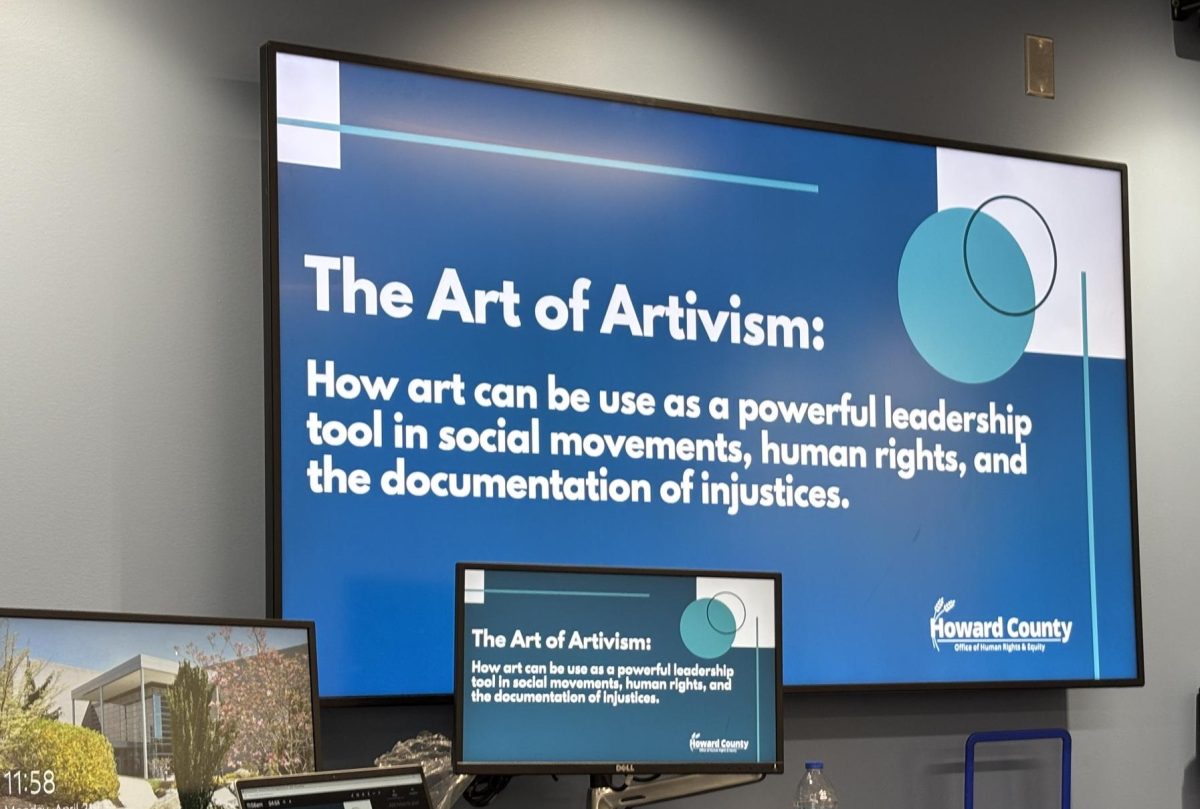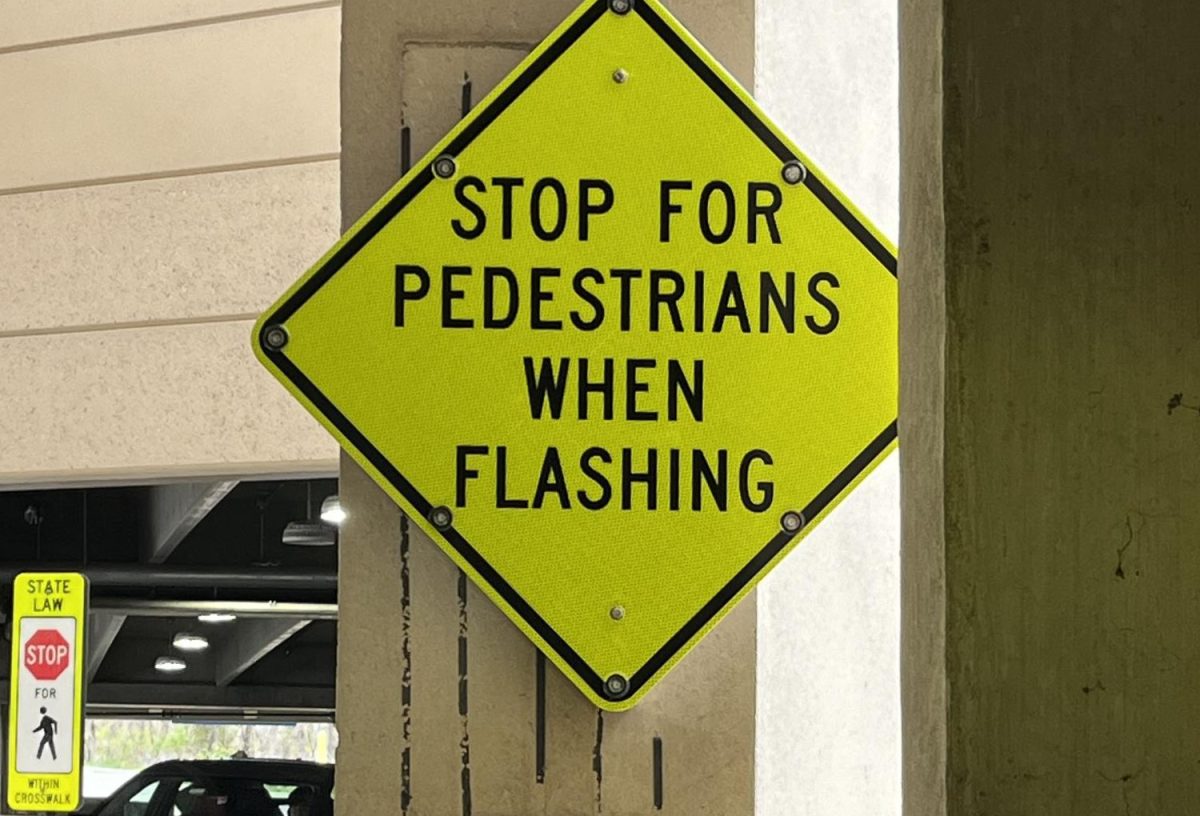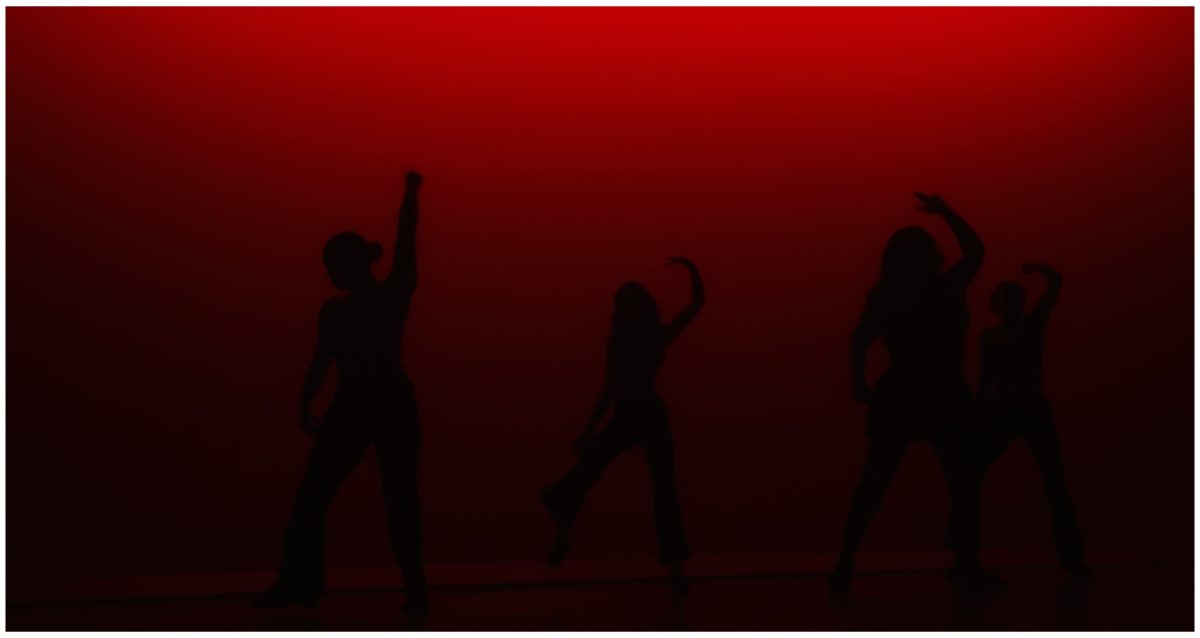“…about two-thirds of what was trashed could’ve been recycled or composted.”
Two-thirds. That’s a pretty big number. Let’s take a step back.
Wednesday, April 24th marked HCC’s 2024 Dumpster Dive, an annual event that started back in 2007 to bring attention to just how much waste is produced on campus daily. A day’s worth of trash is gathered on the Quad, where students sort the trash into one of three categories: compost, recycling, or trash. The event is largely organized by the student-led Environmental Club, which has been working on making concepts such as recycling more practiced in the community. However, informing students and faculty about how much waste is being produced on their campus is not their sole objective.
“The Dumpster Dive is an environmental club tradition that we do every year,” says Andrew Heffner, the President of the Environmental Club. “We hope to spread awareness around what can and cannot be recycled and composted.” The annual Dumpster Dive not only allows participants to see the amount of trash produced, but faculty use the data gathered to promote campus sustainability.
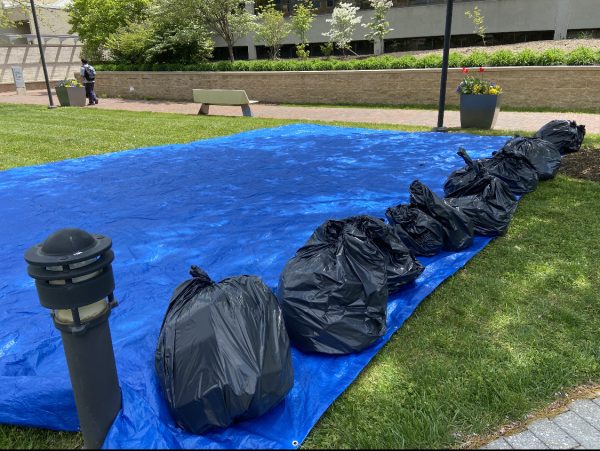
Waste production is a significant issue, both on campus and globally. One of the most used materials is plastic, which is one of the biggest threats to wildlife and the environment. Humans are currently estimated to produce 350 million metric tons of plastic waste every single year, a number that’s expected to triple within the next three decades. Not only does plastic spread toxins, but it can also stick around for centuries before degrading completely, if it does at all.
“Most plastics cannot be recycled, and even recycling is a controversial topic because of the pollutants and energy it uses,” Andrew explains. “Compostable materials are commonly thrown away, which leads to the production of the greenhouse gas methane, which contributes to climate change. The lack of education about waste production exacerbates climate change, leading to all kinds of negative changes that disrupt ecosystems and our daily lives. The plastic from the bag of chips you ate today will still be here long after you have died.”
Bob Marietta, Environmental Health and Safety Supervisor at HCC, also offers insight on why pollution isn’t the only reason the issue of waste production is growing exponentially: “The direct costs of dealing with waste are labor, transportation, processing, and storage. These costs are borne by consumers and increasingly by taxpayers. Space is getting more and more important as we realize there is no way anymore, everywhere belongs to somebody. Howard County no longer has room in its landfill for most of its waste and ships it to other jurisdictions.”
Unfortunately, plastic accounts for only a fraction of total waste production. Two-thirds of the 14 million tons of waste Maryland generates annually are also paper, food scraps, and yard waste (Zero Waste, n.d.). Less than 50% of that gets recycled or composted, meaning it ends up littering the environment one way or another, whether that be through cluttering landfills or being dumped into the ocean. But what can we do about it? Bob Marietta says one piece of advice he’d give students is to make smarter spending decisions. “To reduce waste, buy better stuff that will last longer and can even be repaired or reused so less gets thrown away.”
The Environmental Club hopes that along with more recycling, they can see food waste being composted in the future. The annual Dumpster Dive event at HCC serves as a stark reminder of the pressing need to address waste production at both local and global levels. With the challenges of dealing with waste, the implications for our environment and communities are profound. However, through education and individual action, there’s hope for a future where waste is minimized and our planet is healthier for generations to come.


